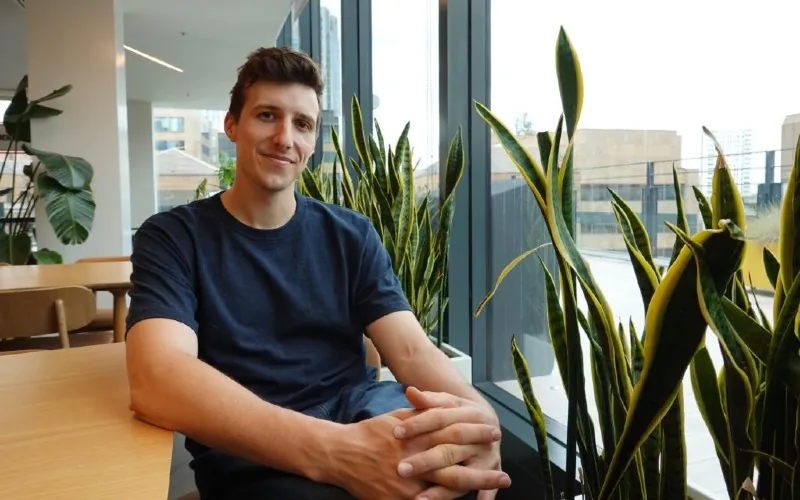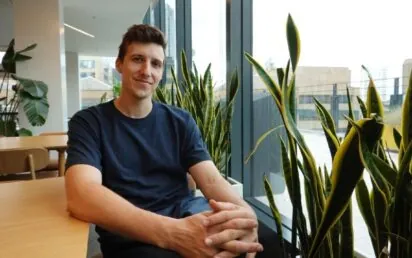A UK company aiming to build a chip to deliver exponential performance improvements for AI models has exited stealth with £12 million in seed funding.
Fractile, based in London, was founded in 2022 by 28-year-old artificial intelligence PhD Walter Goodwin.
It has developed a radically different approach to the design of chips for AI inference that it claims can deliver transformational improvements in performance for frontier AI models in deployment.
The round was co-led by Kindred Capital, NATO Innovation Fund, and Oxford Science Enterprises, with participation from Cocoa and Inovia Capital, together with angel investors including Hermann Hauser (co-founder, Acorn, Amadeus Capital), Stan Boland (ex-Icera, NVIDIA, Element 14 and Five AI), and Amar Shah (co-founder, Wayve). To date, Fractile has raised $17.5m (£14m) in total funding.
Today’s chips and highly developed tools and libraries are well-optimised for training large language models (LLMs), but they are unsuited to inference, which is the process of running live data (input tokens) through a specific model with learnt parameters, to produce results (in LLMs, a series of output tokens).
This means that models are very expensive to provision and run at scale while AI performance is inhibited and there is restricted opportunity for AI model providers to drive differentiation.
Fractile says there are two paths available to a company attempting to build better hardware for AI inference: specialisation – honing in on very specific workloads and building chips that are uniquely suited to those specific requirements, which is problematic because model architectures evolve rapidly in the world of AI – or to fundamentally change the way that computational operations themselves are performed.
The second of these sees the creation of entirely different chips from these new building blocks, and builds massively scalable systems on top of these. This is Fractile’s approach.
The company claims that a Fractile system will achieve astonishing performance on AI model inference – initial targets are 100x faster and 10x cheaper – by using novel circuits to execute 99.99% of the operations needed to run model inference.
A key aspect is a shift to in-memory compute, which removes the need to shuttle model parameters to and from processor chips, instead baking computational operations into memory directly.
Fractile has already built a world-class team with senior hires from NVIDIA, ARM and Imagination, and has filed patents protecting key circuits and its unique approach to in-memory compute.
The company is already in discussions with potential partners and expects to sign partnerships ahead of production of the company’s first commercial AI accelerator hardware. Fractile will use the funding to continue to grow its team and accelerate progress towards the company’s first product.
“In today’s AI race, the limitations of existing hardware – nearly all of which is provided by a single company – represent the biggest barrier to better performance, reduced cost, and wider adoption,” said Dr Goodwin, CEO.
“Fractile’s approach supercharges inference, delivering astonishing improvements in terms of speed and cost. This is more than just a speed-up – changing the performance point for inference allows us to explore completely new ways to use today’s leading AI models to solve the world’s most complex problems.
“We’re thrilled to have raised our funding from investors with a wealth of experience in the AI and chip industries, continue to grow our world-class team and further our technological development and partnerships.”
John Cassidy, Partner at Kindred Capital: “AI is evolving so rapidly that building hardware for it is akin to shooting at a moving target in the dark. It’s a major technical challenge but, with the AI inference chip market projected to be worth $91 billion by 2030, there’s also huge growth potential.
“Because Fractile’s team has a deep background in AI, the company has the depth of knowledge to understand how AI models are likely to evolve, and how to build hardware for the requirements of not just the next two years, but 5-10 years into the future.
“We’re excited to partner with Walter and the team on this journey.”


